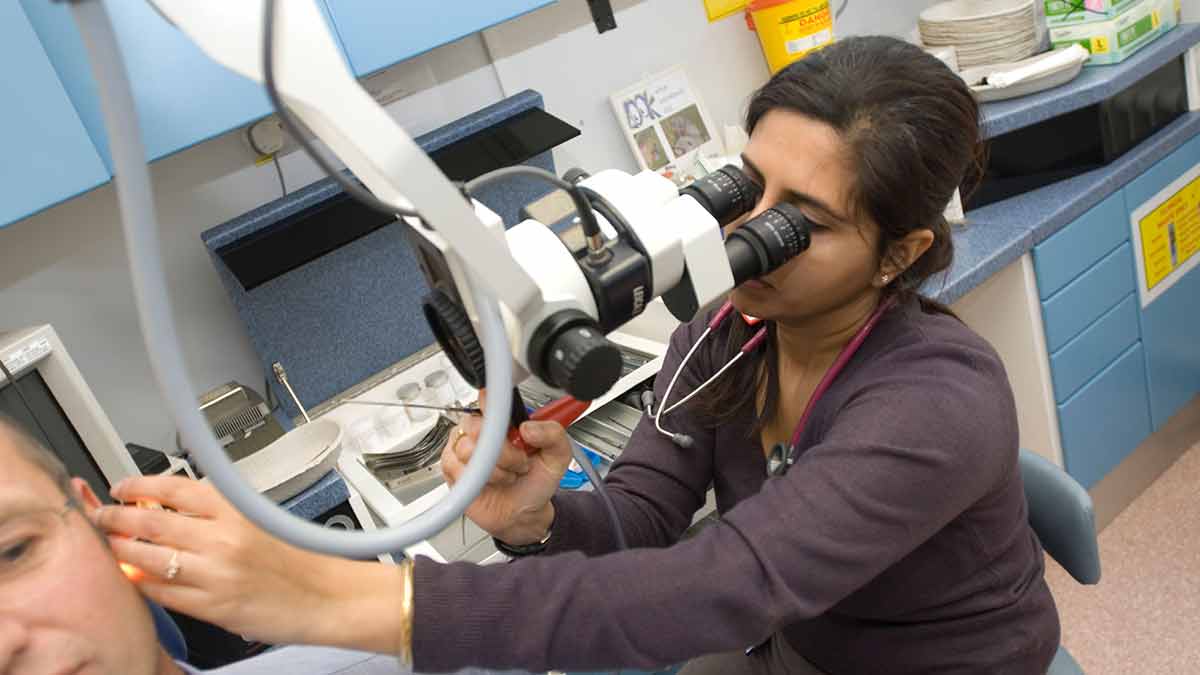

More than half of overseas doctors said their induction to the NHS was inadequate or inappropriate, according to research which also found that many feel anxious about starting their clinical duties.
The Medical Protection Society (MPS), a global protection organisation for healthcare professionals, said that more needs to be done to improve NHS inductions for international medical graduates (IMGs), if the NHS and patients are to continue benefiting from their expertise.
In an MPS survey of 737 IMGs who started NHS roles in the past five years, 58% said their induction was not adequate or appropriate, and 48% felt anxious about starting clinical duties because of this.
Thirty-eight per cent said there was insufficient time shadowing other doctors, and 45% said their induction did not include training on cultural differences and acceptability in the UK. Nearly two-thirds (61%) said they felt fearful of legal issues arising.
Last year’s General Medical Council (GMC) workforce report found that 52% of doctors who joined the workforce in 2022 were IMGs. It also estimated that by 2036 almost a third of doctors will be IMGs.
Professor Dame Jane Dacre, MPS president, said: “The NHS has long relied on their dedication and expertise and the need to attract and retain IMGs will continue.
“We expect much of these doctors when they first come to the UK – they must understand a new and complex health system, with different medicines, cultural norms, ways of communicating with patients, regulatory frameworks, and clinical procedures – often whilst adjusting to living in a new country.”
The survey come two years since Welcoming and Valuing IMGs induction guidance was developed by NHS England, the GMC, the British Medical Association (BMA) and the MPS.
The guidance sets the minimum that NHS Trusts should provide in IMG inductions – covering welcome and pastoral support, professional practice, IT systems, language and communication.
The survey also showed NHS inductions falling short on personal support for IMGs, with 51% of respondents saying they received no help with issues such as finding somewhere to live, opening a bank account, or registering with a GP. Two-fifths (41%) said they felt alone and isolated.
Dame Jane added: “Some NHS trusts run exemplary induction programmes for IMGs and are leading the way. We also welcome the unrelenting efforts of key organisations and individuals to bring about a standardised IMG induction framework and know the GMC’s Welcome to UK Practice workshops play an important role. But the fact remains that too many IMGs are still being let down by trust inductions. This cannot continue; those who come to serve the NHS deserve more.”
Professor Mala Rao, director of the Ethnicity and Health Unit at Imperial College London, who led the development of the induction guidance, said: “The survey is a timely reminder that comprehensive induction as set out in the guidance must become an essential aspect of overseas staff recruitment and retention in the NHS.”
Tista Chakravarty-Gannon, head of the GMC’s Welcome to UK Practice, said: “We have long called for more consistency in the quality of the inductions doctors new to UK practice receive; it is vital we equip them to succeed from the very start. The MPS survey sadly reinforces that a comprehensive induction process remains sporadic, and in some cases lacking.”
One IMG respondent to the survey said: “I was very anxious and worried as working clinically without induction and a very brief period of shadowing… I was just lost.”
Another said: “I learned about appraisals from trial and error, navigated the software on my own, and trained up my incoming colleagues as a means of paying it forward. My consultant was a mentor to me but was not expected to be, and as such, helped manage a lot of anxieties in the workplace. This was due to his goodwill rather than a system that supported me.”
A third respondent said they had their induction three months after starting their new NHS role.
Dr Sai Pillarisetti, chair of the postgraduate committee at the British International Doctors Association, said: “NHS Trusts should embrace induction and recognise it as an opportunity to nurture a sense of belonging and mutual understanding. The quality of induction offered has a direct impact on wellbeing and patient safety, and embedding learnings around cultural competence and UK best practices will help address any variations in communication and clinical practice.”
Sign up to our weekly round-up of HR news and guidance
Receive the Personnel Today Direct e-newsletter every Wednesday
